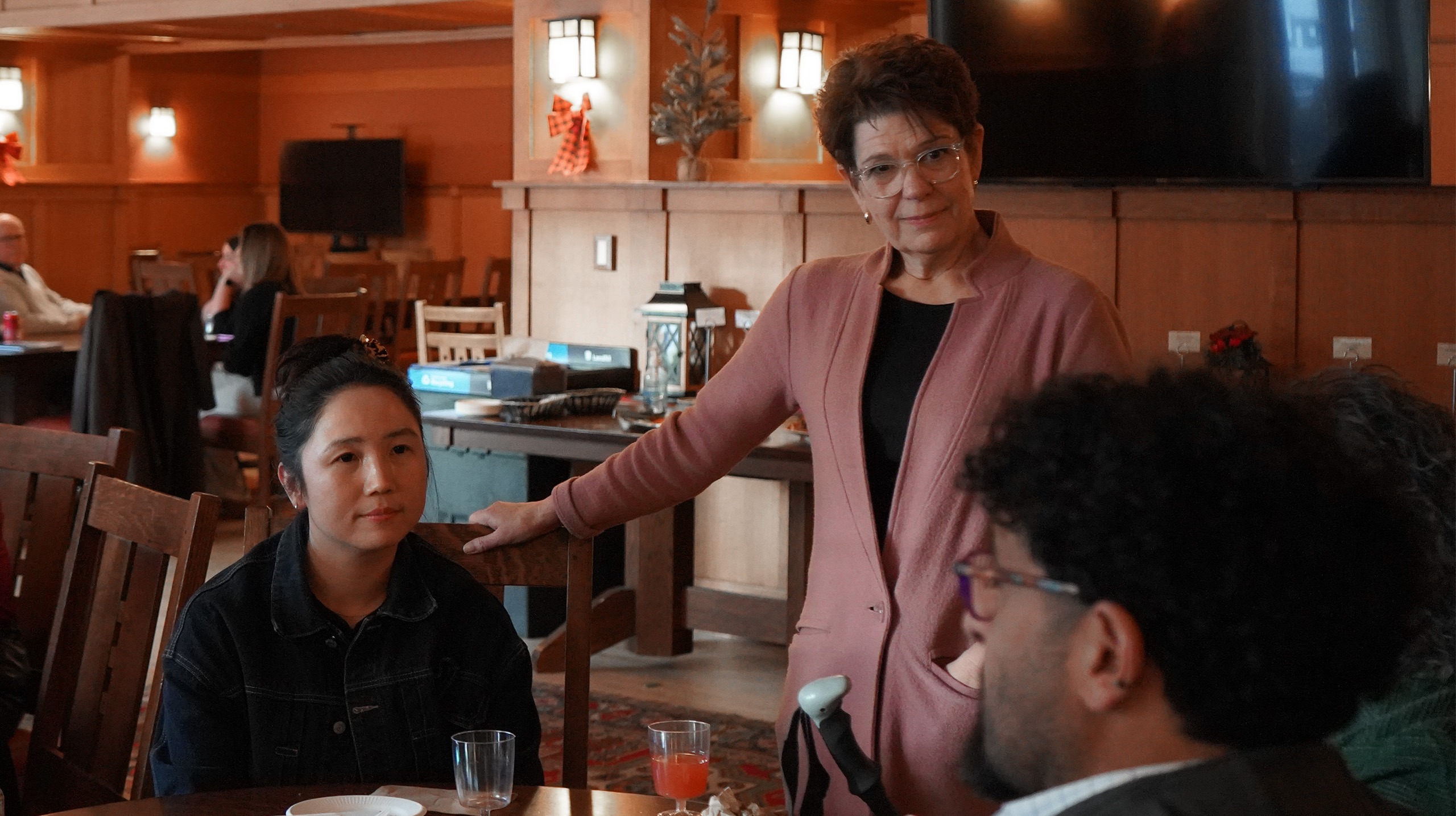2020 marked another exciting year of growth for QI Power Hour, our free monthly quality improvement webinar series. We saw some of our highest attended sessions yet this year, largely in part to our successful Working from Home series (in case you missed it, check out the Working from Home Toolkit).
The sessions in 2020 were focused on a broad range of topics that helped to build understanding, spark personal reflection, and get real with coaching conversations – all to help you strengthen your quality improvement skills and abilities.
If you’d like to stay informed of upcoming QI Power Hour sessions, you can sign up for our QI Power Hour mailing list. If you missed out on the live webinars, past webinar recordings are saved on our website so you can catch up on all of the great insights – at a time that works for you.
Along with the list of the links to the sessions below, we’ve included the bonus content for each session – presentation slides (to take your own notes as you follow along), supporting articles, templates, and other resources – so you can delve deeper on the topics you’re most interested in.
Here are the top 5 QI Power sessions from 2020 (in order of popularity)
- Working Remotely Series: The basics
- The Ladder of Inference
- Storytelling, Unity, and Collaboration: National Indigenous History Month with Lyndon Linklater
- Working Remotely Series: Building Trust with Teams in a Virtual Environment
- Coaching: Getting Past the Hype to Discover the Power of a Coaching Conversation
1. Working Remotely Series: The Basics
Speakers
- Caroline Beck, Improvement Lead, Saskatchewan Health Quality Council
- Chelsea Schwartz, Improvement Lead, Saskatchewan Health Quality Council
Session description
The rapid global spread of coronavirus (COVID-19) has created a requirement to rapidly shift the way we approach work and collaborating. This webinar is for you if are finding yourself in a new reality of remote working, especially for the first time. In this session, we share free online tools that may assist you in adjusting to a remote environment, our community shares some of the challenges they are facing in this new work environment, and we explore how members have designed their work environment to respond to these challenges.
Recommended resources
- Slides Notes Pages: Working Remotely Series: The Basics
- Helpful Hints to Get Started: Setting Up Your Remote Office
- Reading List: Remote Working
2. The Ladder of Inference
Speakers
- Glenda Beauchamp, Improvement Lead, Saskatchewan Health Quality Council
Session description
Did you know that 49% of all recorded workplace conflicts were a result of clashing personalities in the office (CPP Global Human Capital Report, 2008)? Research suggests that companies that support collaborative working are five times more likely to be high performing because a collaborative culture tends to have higher engagement levels, lower stress levels, and higher success rates (Forbes, 2017).
In this session, we discuss how we can use the Ladder of Inference as a way to build mutual understanding and work toward a collaborative work environment. You will learn what the Ladder of Inference is and how can it help de-escalate conflict and support the effectiveness of groups and teams. You will also have a chance to reflect on the ways you work and the mindset you operate from in stressful situations and explore a Mutual Learning Mindset and learn how it can support effective groups and teams.
Recommended resources
3. Storytelling, Unity, and Collaboration: National Indigenous History Month with Lyndon Linklater
Speakers
- Lyndon Linklater, traditional knowledge keeper and storyteller
Session description
In recognition of National Indigenous History Month and National Indigenous Peoples Day (June 21), we welcomed Knowledge Keeper Lyndon J Linklater. Lyndon is a traditional knowledge keeper and storyteller. He has an educational background in Indian Social Work, Indian Studies, and some law. He is a citizen of the Thunderchild First Nation (Plains Cree) in Treaty 6 and has roots in Couchiching First Nation (Fort Francis, Ontario) in Treaty 3.
Lyndon has worked for the Office of the Treaty Commissioner as a Speakers’ Bureau member since he was appointed in 2000. Since that time, he has spoken to well over 50,000 people, delivering awareness and enlightenment on Treaty and First Nation worldview. He is a powerful storyteller that utilizes First Nation teachings that involve knowledge of ceremonies and mixes humour to deliver a poignant message.
Recommended resources
4. Working Remotely Series: Building trust with teams in a virtual environment
Speaker
- Chelsea Schwartz, Improvement Lead, Saskatchewan Health Quality Council
Session description
What’s the one thing trapeze artists and teams have in common? They both need trust to work well together. In fact, trust is what sets high-performing teams apart from those who aren’t successful in their collaboration efforts. But how do you build this trust? And how do you do it in a virtual environment, with fewer communication channels available to help gauge colleague’s reactions and thinking?
In this webinar, you will learn about the elements that make a high performing team, study the factors that influence trust and trustworthiness, and explore three tools to help you build trust with the team members you work with — whether that work is in-person or remote.
Recommended resources
- Slides Notes Pages: Working Remotely Series: Building Trust in a Virtual Environment
- Resource List: Building Trust
- Template: How to Work with Me
- Blog: Charting a course for team success: the team charter
5. Coaching: Getting Past the Hype to Discover the Power of a Coaching Conversation
Speaker
- Jennifer Klatt (Ehrmantraut), PCC, CEC, CPA, CMA, PSGov
Session description
Being a health care leader was complicated enough in 2019 — but wow 2020 has been challenging! Creating depth in your leadership toolkit is more important than ever. There are so many tools that you can access as a leader and coaching is a trendy and often misused tool. There is a time and a place for coaching, and to let you in on a secret — it is not all of the time. Knowing which tool to use and how to use it effectively makes all the difference in team dynamics, productivity and overall health in the workplace. When a coaching conversation is used in the right setting with the right intention and focusing on the right things, it can be a very effective tool for leaders to help their teams excel in this uncertain world.
According to the International Coach Federation, the five outcomes of coaching are:
- improved communication skills
- increased confidence
- increased productivity
- optimized individual/team performance
- improved work/life balance
In this webinar, we discuss what coaching is and what it is not, the different types of conversations that leaders need to engage in with their teams, how to recognize when coaching will be beneficial for an individual, the five key stages of coaching an effective coaching conversation, and what you can do to increase your coaching skills.
Recommended resources
- Slides Notes Pages: Coaching: Getting past the hype to discover the power of a coaching conversation
Stay up to date with QI Power Hour
Do you want to become a part of a growing community of improvers in Saskatchewan and beyond? Subscribe to our QI Power Hour mailing list to stay in the know about upcoming sessions, and be the first to receive links to recordings and materials from sessions that you miss!
Have questions, or want to profile your work on an upcoming QI Power Hour? We’d love to hear from you! Contact Chelsea at cschwartz@hqc.sk.ca.




